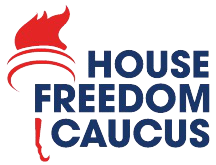
Freedom Caucus: The Radicals Organize in Congress
Before it became part of the Trump movement, the Tea Party formed a new power center in Washington when it organized the House Freedom Caucus. In doing so, it institutionalized in Congress the revolt Gingrich had championed in 1978 against existing leadership and what he deemed was meek, middle class Republicanism.
As noted in 2015 by Drew DeSilver of the Pew Research Center, “What most distinguishes the Freedom Caucus from other House Republicans has been their willingness to defy the wishes of leadership” on specific policies and more generally to shift power away from party leadership to the committees.
House Speaker John Boehner, who once had been schooled to “speak like Newt” as a young GOP candidate, was targeted by the Freedom Caucus in one of their first acts. Their reason: They felt the Speaker had ignored their demands during the 2013 debt ceiling crisis and then refused to give them key committee assignments because of their opposition to his leadership. Boehner ended up resigning from Congress and the speakership in September of 2015. Two years later, in an interview with Vanity Fair, he famously said of the Freedom Caucus:
“They can’t tell you what they’re for. They can tell you everything they’re against. They’re anarchists. They want total chaos. Tear it all down and start over. That’s where their mindset is.”
By the time Boehner said this in October 2017, the caucus had already lined up behind Donald Trump. In his last two years in the White House, Trump appointed as his chief of staff two leaders of the Freedom Caucus – Mick Mulvaney, a Caucus founder, and then Mark Meadows, a former chair of the Caucus.
In 2023, when the Republicans again had a majority in the House, the Freedom Caucus held sway over the contentious election of Kevin McCarthy (R-CA) as House speaker, only to revolt against him 10 months later. After some further contentious maneuvering, they succeeded in installing one of their own, Mike Johnson, (R-LA). But even Johnson, who has at times negotiated with the Biden administration on Ukraine funding and other issues, has come under fire from Caucus members dissatisfied with his willingness to compromise.
Outside of Washington, a state Freedom Caucus network provides resources to assist 11 state-based Freedom Caucuses in their policy battles. When Politico’s Peder Schaefer looked at how the Freedom Caucus model was playing out in those places, he singled out South Carolina for the intraparty chaos the caucus there has caused. In his article, Schaefer quoted South Carolina Republican state Representative Micah Caskey: “They are a ‘let’s govern by bumper sticker’ entity. I have a general contempt for what I see as the lack of integrity and honesty with which they approach legislating.”

